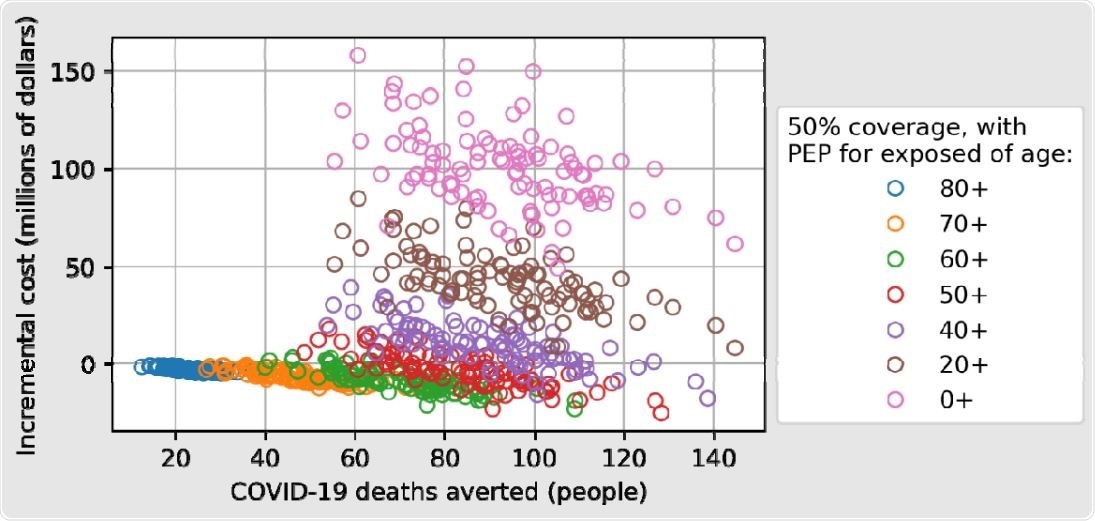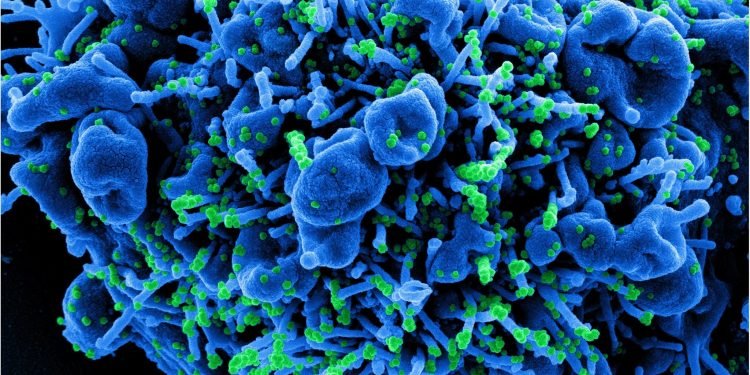In a research carried out on the College of Washington, USA, the researchers assert that post-exposure prophylaxis with monoclonal antibodies may enhance the medical outcomes and well being system prices concerning coronavirus illness (COVID-19). The research is presently obtainable on the medRxiv* preprint server.
Background
The very best affect of the COVID-19 pandemic, attributable to extreme acute respiratory syndrome coronavirus 2 (SARS-CoV-2), has been noticed within the USA, with greater than 39.9 million infections and over 648,000 deaths. Regardless of ample vaccine availability and mass vaccination efforts, the variety of new infections is consistently growing within the nation, most likely due to rising viral variants with larger immunogenicity, vaccine hesitancy, and waning vaccine immunity.
Apart from vaccines, monoclonal antibody (mAb) therapies have demonstrated efficacy to forestall an infection amongst unvaccinated people with a high-risk publicity to somebody with SARS-CoV-2 an infection. In contrast to vaccines that induce host cell immunity to eradicate the virus, monoclonal antibodies immediately bind to viral antigen, resulting in sooner virus elimination from the system. This makes monoclonal antibody remedy engaging prophylaxis to forestall family transmission of SARS-CoV-2. Nonetheless, a excessive manufacturing price generally limits the large-scale software of antibody-based therapies.
Within the present research, scientists have assessed monoclonal antibodies’ well being advantages and prices as post-exposure prophylaxis.
Research design
The scientists collected details about antibody efficacy from the section 3, placebo-controlled, family randomized trial of the monoclonal antibody cocktail casirivimab and imdevimab. Within the trial, the antibody cocktail was injected subcutaneously to asymptomatic, SARS-CoV-2 unfavourable family members of individuals with confirmed COVID-19. In keeping with the trial findings, monoclonal antibody remedy reduces the chance of symptomatic COVID-19 by 81%.
From the trial findings, the scientists estimated a secondary an infection charge of seven.8%. They used a decision-analytical mannequin to mix the trial outcomes with the inhabitants knowledge on family demographic particulars, the variety of COVID-19 circumstances and demographics, and vaccine protection to estimate the variety of symptomatic COVID-19 circumstances, hospitalization, mortality, and well being system price of antibody remedy.
Essential observations
About 753 contributors had been handled with the antibody cocktail within the trial, and 752 contributors had been within the placebo group. The scientists mixed the outcomes with COVID-19 case knowledge overlaying 154,136 people, vaccination knowledge overlaying 1,888 people, and family demographic knowledge overlaying 3,190,040 people in 1,394,399 households. Based mostly on the ethnic traits of family members, they estimated that about 17%, 20%, 53%, and 11% of unvaccinated family contacts are non-Hispanic Black, Hispanic, non-Hispanic White, and different non-Hispanic ethnic teams, respectively.

The variety of COVID-19 deaths averted will increase because the minimal age threshold for receiving PEP is decreased, and the incremental price (together with price of PEP with mAbs plus price of COVID-19 hospitalizations) exhibits the tradeoff between decreasing hospitalization prices and growing PEP prices, with a most discount in incremental price for a program that provides PEP to people aged 50 years or older.
Well being affect of antibody remedy
The scientists assumed a state of affairs the place antibody remedy was utilized to 50% of unvaccinated contacts aged 50 years or above. This corresponded to twenty-eight,187 people with an antibody remedy. The well being affect evaluation revealed that the antibody cocktail remedy protection of fifty% resulted within the prevention of 1,813 symptomatic illness, 526 hospitalizations, and 83 deaths.
Increasing the evaluation to family contacts aged 20 years or above, they estimated that the antibody remedy may stop greater than 5,000 symptomatic COVID-19, 768 hospitalizations, and 93 deaths. In distinction, the evaluation overlaying family contacts aged 80 years or above resulted in a discount of 104 symptomatic illness, 67 hospitalizations, and 24 deaths. Notably, a corresponding 50% discount in all examined medical outcomes was noticed by growing the remedy protection to75%.
A variation within the well being affect of antibody remedy was noticed between ethnic teams, with non-Hispanic Black people exhibiting the best profit and non-Hispanic White people exhibiting the bottom profit.
Price-effectiveness of antibody remedy
The scientists estimated that with out antibody remedy, the price of hospitalization attributable to secondary SARS-CoV-2 an infection acquired by family transmission can be 150 million {dollars}. As noticed in additional evaluation, this price might be diminished to 147 million {dollars} by offering antibody remedy to 50% of unvaccinated family contacts aged ≥50 or ≥80 years. In distinction, by contemplating family contacts aged 20 years or above for antibody remedy, they estimated a complete well being system price of 193 million {dollars}, which is 43 million {dollars} larger than with out antibody remedy.
Research significance
The research findings reveal that the medical outcomes of COVID-19 in addition to remedy prices, might be improved by implementing monoclonal antibody therapies as post-exposure prophylaxis.
*Essential Discover
medRxiv publishes preliminary scientific experiences that aren’t peer-reviewed and, subsequently, shouldn’t be considered conclusive, information medical observe/health-related habits, or handled as established info.





.jpg)






